| Origem | Literatura Estrangeira |
|---|---|
| Quantidade de Páginas | 68 |
| Acabamento | Capa Comum |
| Autores | Rebecca Steltner |
| Idioma | Inglês |
| Edição | 0 |
| Selo | GRIN Publishing |
 1001 Perfumes O Guia: Edição 2024
1001 Perfumes O Guia: Edição 2024
EGO IN VITRO
R$ 115,90 ou até 2x sem juros Take Me To Church
Take Me To Church
Liz Demer
R$ 109,74 ou até 2x sem juros How to Make a Narrow Tang Knife
How to Make a Narrow Tang Knife
Heavin Forge Media
R$ 157,25 ou até 3x sem juros Vincent Van Gogh Scrapbook Paper
Vincent Van Gogh Scrapbook Paper
Mind Beyond Media
R$ 85,33 à vista Plant Dye Zine
Plant Dye Zine
Rebecca Desnos
R$ 122,62 ou até 2x sem juros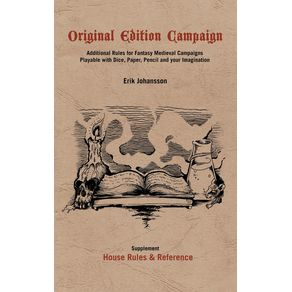 Original Edition Campaign
Original Edition Campaign
Books on Demand
R$ 68,32 à vista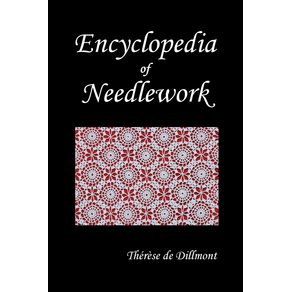 Encyclopedia of Needlework (Fully Illustrated)
Encyclopedia of Needlework (Fully Illustrated)
Benediction Books
R$ 212,44 ou até 3x sem juros Woodturning for Beginners Handbook
Woodturning for Beginners Handbook
Neha Dubey
R$ 97,30 à vista Whimsical Darlings
Whimsical Darlings
Lulu Press
R$ 97,95 à vista Coin Collectors Handbook
Coin Collectors Handbook
Lulu Press
R$ 168,67 ou até 3x sem juros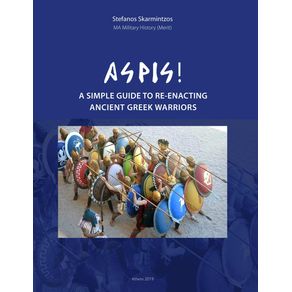 Aspis! A Simple Guide to Re-enacting Ancient Greek Warriors
Aspis! A Simple Guide to Re-enacting Ancient Greek Warriors
Lulu Press
R$ 160,92 ou até 3x sem juros Fantasy Dolls Vol.2 Coloring Book Line Art
Fantasy Dolls Vol.2 Coloring Book Line Art
Lulu Press
R$ 85,07 à vista Coloring Book Whimsical Darlings Holidays Edition
Coloring Book Whimsical Darlings Holidays Edition
Lulu Press
R$ 87,13 à vista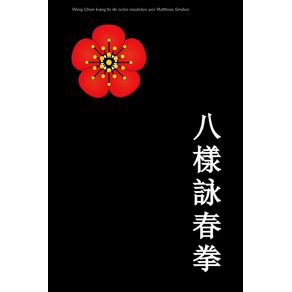 Wing Chun kung-fu de ocho modelos
Wing Chun kung-fu de ocho modelos
Lulu Press
R$ 316,61 ou até 3x sem juros 101 Bladesmithing FAQ
101 Bladesmithing FAQ
ForgingHero Publishing
R$ 117,94 ou até 2x sem juros Take Me To Church
Take Me To Church
Liz Demer
R$ 109,74 ou até 2x sem juros Vincent Van Gogh Scrapbook Paper
Vincent Van Gogh Scrapbook Paper
Mind Beyond Media
R$ 85,33 à vista Little Loom Weaving
Little Loom Weaving
Bookpack Inc
R$ 119,72 ou até 2x sem juros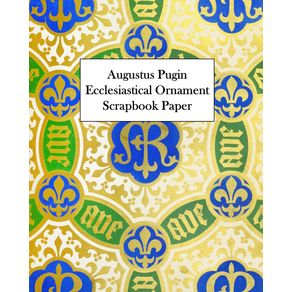 Augustus Pugin Ecclesiastical Ornament Scrapbook Paper
Augustus Pugin Ecclesiastical Ornament Scrapbook Paper
Blurb
R$ 166,05 ou até 3x sem juros Plant Dye Zine
Plant Dye Zine
Rebecca Desnos
R$ 122,62 ou até 2x sem juros Pumpkin Carving Stencils
Pumpkin Carving Stencils
Artchur
R$ 99,95 à vista Encyclopedia of Needlework (Fully Illustrated)
Encyclopedia of Needlework (Fully Illustrated)
Benediction Books
R$ 212,44 ou até 3x sem juros Woodturning for Beginners Handbook
Woodturning for Beginners Handbook
Neha Dubey
R$ 97,30 à vista Wood Joinery for Beginners Handbook
Wood Joinery for Beginners Handbook
Neha Dubey
R$ 93,09 à vista Aspis! A Simple Guide to Re-enacting Ancient Greek Warriors
Aspis! A Simple Guide to Re-enacting Ancient Greek Warriors
Lulu Press
R$ 160,92 ou até 3x sem juros Fantasy Dolls Vol.1 Coloring Book Grayscale
Fantasy Dolls Vol.1 Coloring Book Grayscale
Lulu Press
R$ 79,64 à vista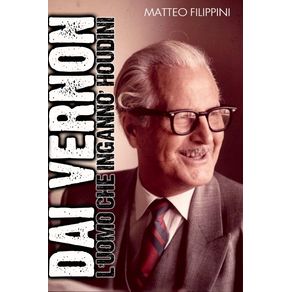 Dai Vernon
Dai Vernon
Lulu Press
R$ 136,00 ou até 2x sem juros Fantasy Dolls Vol.1 Coloring Book Line Art
Fantasy Dolls Vol.1 Coloring Book Line Art
Lulu Press
R$ 85,62 à vista Blend Your Own Pipe Tobacco
Blend Your Own Pipe Tobacco
Lulu Press
R$ 146,45 ou até 2x sem juros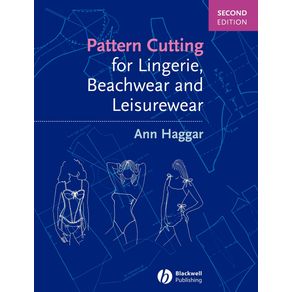 Pattern Cutting for Lingerie, Beachwear and Leisurewear
Pattern Cutting for Lingerie, Beachwear and Leisurewear
John Wiley & Sons
R$ 478,81 ou até 3x sem juros 1001 Perfumes O Guia: Edição 2024
1001 Perfumes O Guia: Edição 2024
EGO IN VITRO
R$ 115,90 ou até 2x sem juros Furtannia
Furtannia
Uncle Bear Publishing, LLC
R$ 150,09 ou até 3x sem juros Halloween Pumpkin Carving Stencils
Halloween Pumpkin Carving Stencils
GoPublish
R$ 82,21 à vista Macramé pour les debutants
Macramé pour les debutants
Draft2Digital
R$ 127,53 ou até 2x sem juros How to Make a Narrow Tang Knife
How to Make a Narrow Tang Knife
Heavin Forge Media
R$ 157,25 ou até 3x sem juros Manual de ebanistería para principiantes
Manual de ebanistería para principiantes
Neha Dubey
R$ 114,35 ou até 2x sem juros Little Loom Weaving
Little Loom Weaving
Bookpack Inc
R$ 119,72 ou até 2x sem juros Augustus Pugin Ecclesiastical Ornament Scrapbook Paper
Augustus Pugin Ecclesiastical Ornament Scrapbook Paper
Blurb
R$ 166,05 ou até 3x sem juros Original Edition Campaign
Original Edition Campaign
Books on Demand
R$ 68,32 à vista Encyclopedia of Needlework (Fully Illustrated)
Encyclopedia of Needlework (Fully Illustrated)
Benediction Books
R$ 212,44 ou até 3x sem juros Coin Collectors Handbook
Coin Collectors Handbook
Lulu Press
R$ 168,67 ou até 3x sem juros Whimsical Darlings Coloring Book
Whimsical Darlings Coloring Book
Lulu Press
R$ 86,31 à vista Dai Vernon
Dai Vernon
Lulu Press
R$ 136,00 ou até 2x sem juros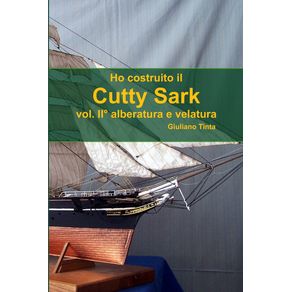 Ho costruito il Cutty Sark vol. II° alberatura e velatura
Ho costruito il Cutty Sark vol. II° alberatura e velatura
Lulu Press
R$ 170,37 ou até 3x sem juros 101 Bladesmithing FAQ
101 Bladesmithing FAQ
ForgingHero Publishing
R$ 117,94 ou até 2x sem juros